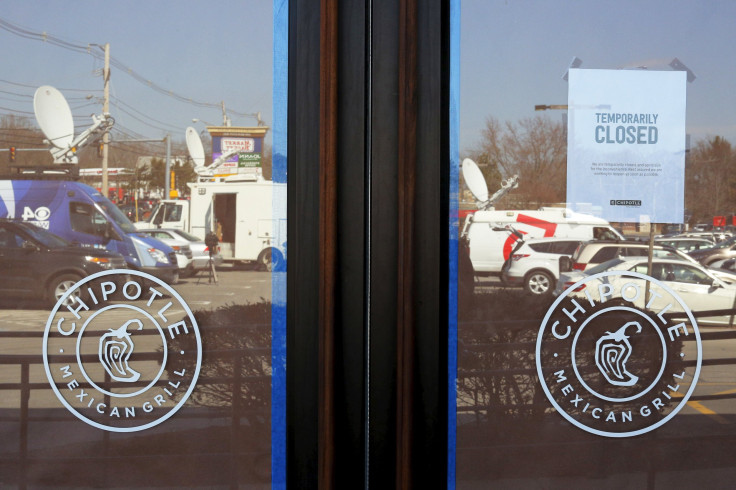Chipotle Executives Accused Of Cashing In On Company Stock As Food Safety Concerns Mounted
Executives at Chipotle Mexican Grill made hundreds of millions of dollars from company stock sales while keeping mum about the restaurant chain’s worsening food safety crisis, an investor lawsuit alleges.
In the months leading up to a string of viral outbreaks in mid-2015 — and before the broader public became aware of the depth of Chipotle’s food safety problem — executives disposed of their hefty stock options, taking advantage of a share price that was still “artificially inflated” due to omissions and misrepresentations of material public information, the lawsuit claims.
Founder Steve Ells pocketed $78 million in share sales “before the fraud was exposed,” the complaint said.
The lawsuit, first reported by Colorado Public Radio, adds yet another liability to the fast-casual burrito chain, which has struggled to recover from the outbreak of foodborne illnesses that sent share prices tumbling nearly 50 percent in the past year.
Complicating the claims are Chipotle’s recent string of stock repurchases, initiated before the food safety issues arose but accelerated as the crisis deepened. The company spent more than $1 billion between 2015 and early 2016, including more than $300 million in the final months of 2015 when Chipotle’s stock price was tanking.
In all, the company threw away $84 million in stock repurchases that were made before the share price had reached its nadir, the lawsuit alleges.
It’s not the first time that stock buybacks have factored into a shareholder lawsuit in recent months. In March investors brought a suit against LPL Financial, claiming the company initiated a $250 million share repurchase just before reporting a sharp decline in earnings, which sent LPL’s share price plunging more than 40 percent.
On the other side of that share repurchase: Private equity firm TPG Capital managed to sell $187 million in LPL stock during the repurchase period, two months before the company’s shares plummeted on a dismal quarterly report.
Share buybacks, which benefit existing shareholders and executives by concentrating ownership in fewer hands, have attracted increased scrutiny. Companies have spent $2.1 trillion gobbling up their own shares in the past five years, according to HSBC, despite concerns the purchases come at the expense of investments in longterm growth.
It’s not just the timing of the share sales and buybacks that raised concerns for Chipotle’s investors. The lawsuit alleges further that Chipotle’s board management unjustly enriched themselves thanks to lenient compensation guidelines penned in 2011.
The defendants “abused their power to grant stock awards to themselves and the company’s executive management by giving themselves and certain of the company’s executive management excessive stock awards worth hundreds of millions of dollars,” the lawsuit said.
Until a recent pay cut, Chipotle executives made more than 1,000 times what the average burrito-filler earned in a year, nearly three times higher than the ratio of the average Standard & Poor's 500 company.

© Copyright IBTimes 2024. All rights reserved.




















